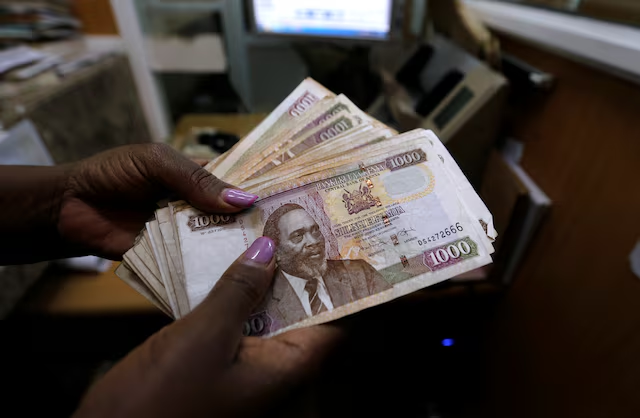
NAIROBI, Jan 9 (Reuters) – The Kenyan and Ugandan shillings, Ghanaian cedi and Zambia’s kwacha are all expected to ease against the dollar in the next week to Thursday, traders said.
KENYA
Kenya’s shilling KES= is forecast to weaken on increased demand for dollars from importers across all sectors of the economy.
Commercial banks quoted the shilling at 129.00/130.00 per dollar, compared with last Thursday’s close of 129.00/129.50.
“The shilling is on an upward (weakening) trend. Right now (dollar demand) is from a mix of all sectors in the economy,” a trader at one commercial bank said.
UGANDA
The Ugandan shilling UGX= is seen weakening on the back of strong demand by players in the interbank market looking to build healthy foreign exchange positions as the new year starts, traders said.
Commercial banks quoted the shilling at 3,694/3,704 on Thursday, compared to 3,673/3,683 a week ago.
“Normally as the year starts we tend to see elevated (dollar) demand,” said a trader at one commercial bank.
He said the shilling was likely to weaken to around 3,720 against the dollar.
GHANA
Ghana’s cedi GHS= is expected to remain softer against the dollar next week as demand remains subdued, traders said.
LSEG data showed the cedi trading at 14.70 to the dollar on Thursday, compared to 14.65 at last Thursday’s close.
“The cedi has been on the ropes recently, largely on the back of weaker FX flows. Demand from local corporates has also begun to ramp up, further contributing to the weaker cedi in the week,” said Sedem Dornoo, a senior trader at Absa Bank Ghana.
“It is likely that the local unit will remain under pressure in the coming week as demand continues to ramp up as several businesses kick start operations for the year,” he added.
ZAMBIA
Zambia’s kwacha ZMW= is likely to remain under pressure against the dollar as a severe drought continues to weigh on the local currency.
On Thursday, the currency of Africa’s second largest copper producer was trading at 27.9000 compared to 27.7750 last Thursday. It has hit a series of record lows since the start of the year.
“The drought has resulted in significant payments for imported electricity and reduced copper production – a key foreign currency earner – weighing on the kwacha,” Access Bank said in a note on Thursday.
(Reporting by George Obulutsa, Elias Biryabarema, Christian Akorlie and Chris Mfula; Editing by Kirsten Donovan)

